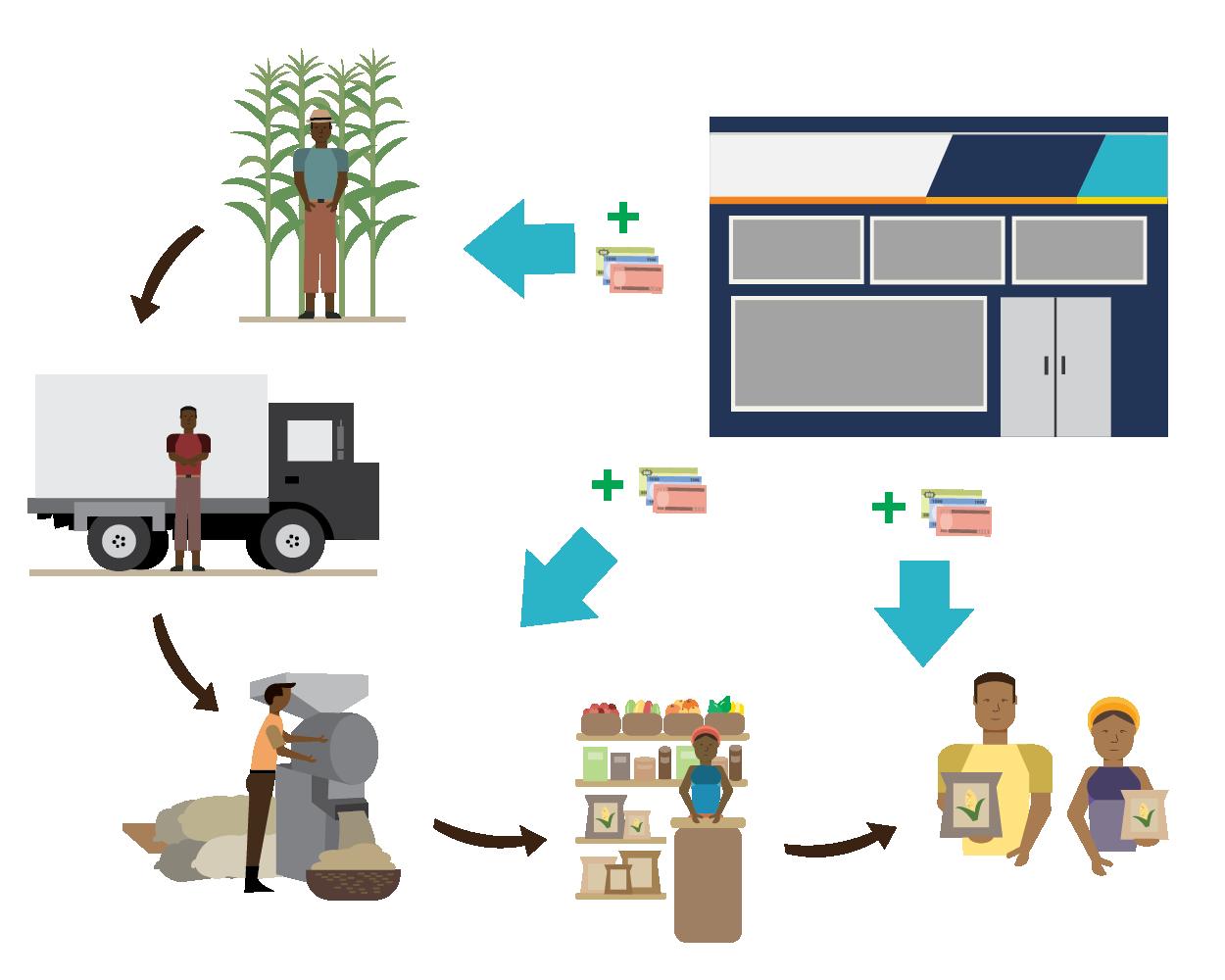
3 minute read
Lesson 10. Saving wisely
• Planning the wise use of a loan
It is important only to take a loan from an institution or group that will be honest and fair with you. Be sure to ask all the questions you have and discuss with your family before making a commitment. It is also important to think about using the loan in a wise way. Because you have to pay interest on the loan, you should invest the loan money in things that will help you increase your income and profits. Some people may know you got a loan and ask to borrow some money. Or maybe there is a temptation to spend the money on some personal items that won’t help you increase your profits. The best thing to do when you get the loan is to invest it in your business as soon as possible. If you really need to lend someone money or purchase a personal item, do it out of your business profits instead of the loan.
Advertisement
Closing activity:
Ask the group to share two things each that they remember to consider when taking a loan. If time allows, you could ask them to share example from their experience or that they have seen from others of how to use the loan wisely for a purpose that will increase profits.
Anchor Scripture
• Proverbs 21:20 The wise store up choice food and olive oil, but fools gulp theirs down. • Proverbs 30:25 Ants are creatures of little strength, yet they store up their food in the summer.
Local proverbs
• Early planning for the future - Akabando k’iminsi gacibwa kare kakabikwa kure. • Bad days can manage to cook an elephant in a small pan - iminsi iteka inzovu mu rwabya • Having a fill stomach is like working in vain - ugorwa n’ubusa arara ahaze,uhima inda arayirariza
Specific learning objectives: At the end of this training, participants should be able to: • Understand what saving is • Share their perspective on why it is important to save
Introduction
Profit is the money that is left over after selling the product. It is the entrepreneur’s decision to decide whether to use the profit for him/herself or the household or to save it at the bank. If a business person has little profit, they may find it very difficult to keep money aside for future needs. However, saving money for future needs helps business people to improve their business and their lives.
DISCUSSION
Ask: If your business makes a profit, what would you do with the money? Accept all answers. Bring out the following: • If you have not taken any money from the business money for yourself and your household, then you will have to pay yourself first. The rest of the money can be put into savings, until you need it.
What are savings?
To save means to keep money apart and not spending it, until the purpose you have planned to use it arises.
Ask: Why would you save money? Accept all answers, and proceed with the explanation.
1. To replace or repair old or damaged equipment and tools
2. To expand your business. For example:
• The mandazi seller is saving to buy a bigger sufuria, so that she can fry more mandazi at a time and thus sell more. In future she may want to bake cakes, so she is saving to buy an oven. Illustration: woman starting in a small shack, saving at a bank and finally opening a big shop. • The poultry farmer wants to save money so that she will be able to buy more chicks
• The driver wants to save money so that he can buy his own taxi.
3. To prepare for emergency cases. For example:
• The children all need school fees at the beginning of the year • Your child gets sick and is admitted to the hospital • Your relative dies, and you have to contribute to the funeral. Illustrated by a coffin image
4. To improve your way of living. For example:
• Building a house or making improvements to your home • Buying a cow to produce milk for the family.
5. To be eligible or creditworthy with a bank when and if you need a loan in future.
6. To invest in a new business idea
Many people find it easier to save if they have a specific goal in mind. When you are tempted to spend the money on something else, you can remember the goal and how proud you will be once you reach the goal.









